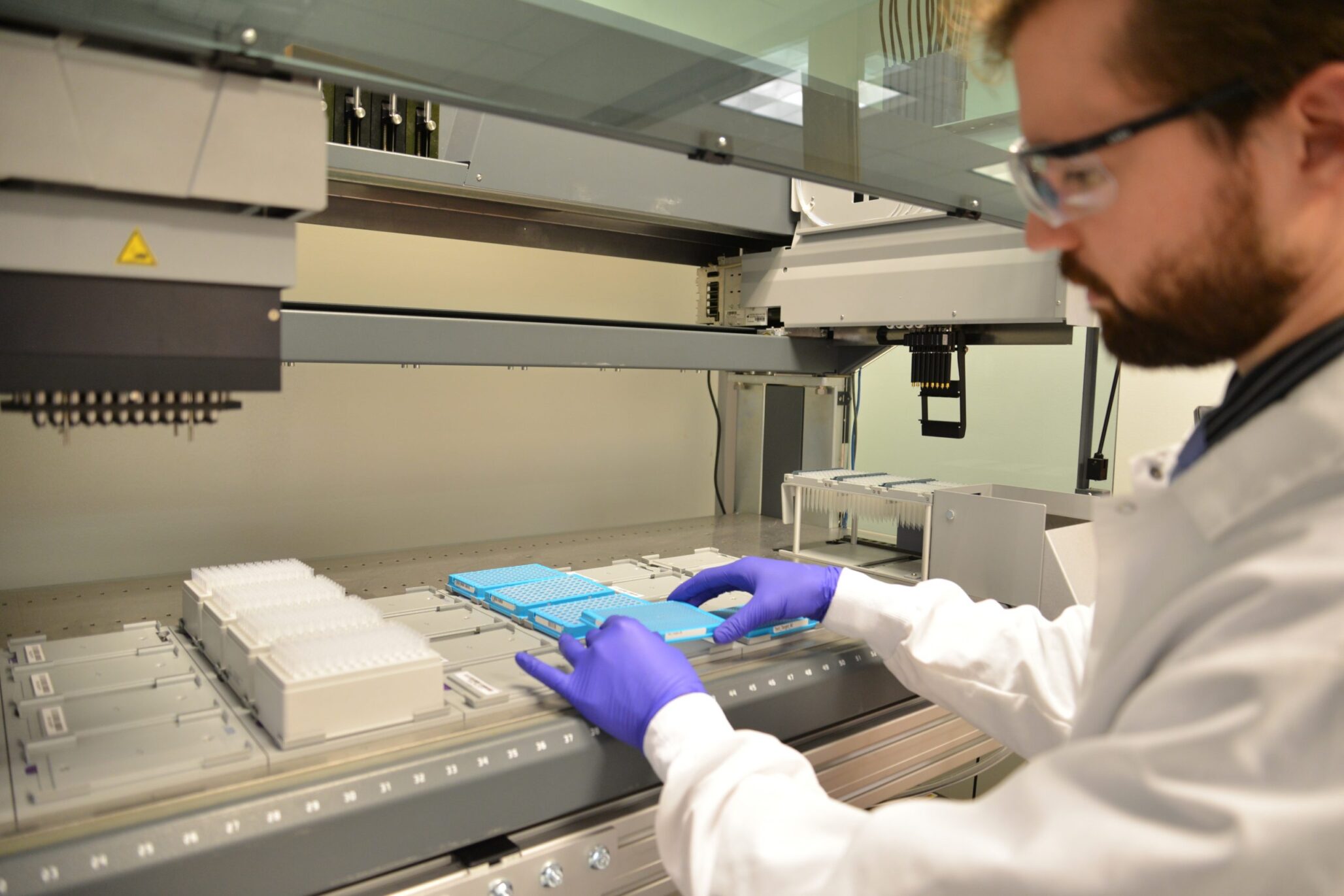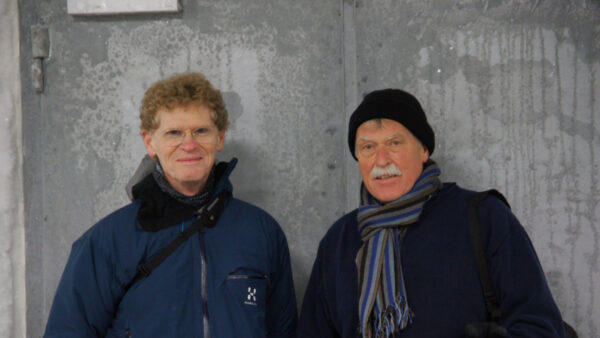The Louisiana State University (LSU) Ag-Center’s rice program is a small, applied breeding program generating big results. Currently about two thirds of the rice grown in Louisiana was bred by LSU’s program. But LSU plant breeder professor Adam Famoso knows there’s no room to sit back and celebrate past successes: facing intense global competition, Louisiana’s farmers and millers are depending on the LSU team to roll out higher yielding, more disease resistant, better quality varieties. That’s why LSU has turned to new mid-density multiplexing technology that allows better, faster, cheaper genomic screening.
LSU has the capacity to handle genomic screening in-house for simple traits that are associated with single genes, like disease resistance, aroma, or leaf pubescence. However, LSU’s rice program is now at the point where it requires more intensive multiplexing for more complex traits.
“Initially we focused on low-hanging fruit where we could get immediate impact,” says Famoso. “But our goal when we started was to get to where we are now, which is looking for some of the more complex traits like yield and quality that aren’t associated with a single gene. The approach we – along with a lot of the industry – has moved towards is genomic selection. We’re not trying to identify a gene per se; we’re trying to predict how well a line will perform based on a larger number of genetic markers. To enable this, we began collaborating with Kelly Robbins and Susan McCouch at Cornell University, who are experts in this field. We also hired a postdoctoral associate, Chris Hernandez, who is leading this research.”
While singleplex screening can’t provide broad enough data to screen for complex traits, high density multiplexing is too detailed – and too expensive – for LSU’s needs. To achieve the mid-density ‘sweet spot’ screening they need, LSU turned to Agriplex Genomics.
“There have been good solutions for high density and low density for a number of years. Just recently, there’s now cost-effective solutions for mid-density,” says Famoso. “For mid-size genomic screening, say a few hundred markers, we send our samples to Agriplex Genomics. Turn-around is longer than if we did it in-house, but it’s quick enough for what we need. Since they are very specialized, they can generate data cheaper than we can in-house.”
While Agriplex can screen genomes on an as-needed basis for any client, the most cost-effective way to work with a regular client is via a custom-made multiplexing panel. For the past two years, LSU and Agriplex have worked together to create and then streamline a custom panel for LSU’s rice program. The rice panel includes key single-gene traits but is also designed to help zero in on the complex traits most critical to farmers and millers, specifically yield, milling characteristics, and certain morphological traits. To date, Famoso’s team has used the panel to evaluate well over 10,000 lines. He expects to scale up to between 10- and 15,000 lines per year.
“We are able to generate predictions on lines much, much more cheaply than we could evaluate them in the field. The panel has made our lives much easier and our programs run faster,” Famoso says.
The LSU rice panel started with 1200 SNPs. The team then cut that to what they thought were the most critical 550 SNPs. From there, the panel continues to be tweaked via further additions and subtractions.
“The more the team utilises the panel, the more precise it will become,” says Famoso. “A panel doesn’t have to be perfect right off the bat – that’s not the point. You want a starting place so that the rest of your program can get going, and then you adjust from there. Maybe there are 60 SNPs that really don’t do much, so let’s get rid of those, but maybe we have key limitations elsewhere, so let’s add some back in. The benefit of the Agriplex platform is there’s flexibility.”
Outsourcing molecular screening just makes sense, he adds.
“We need to stay focused on and invest our energies into what we’re doing with our research program. Everything else, I’m happy to outsource.”












